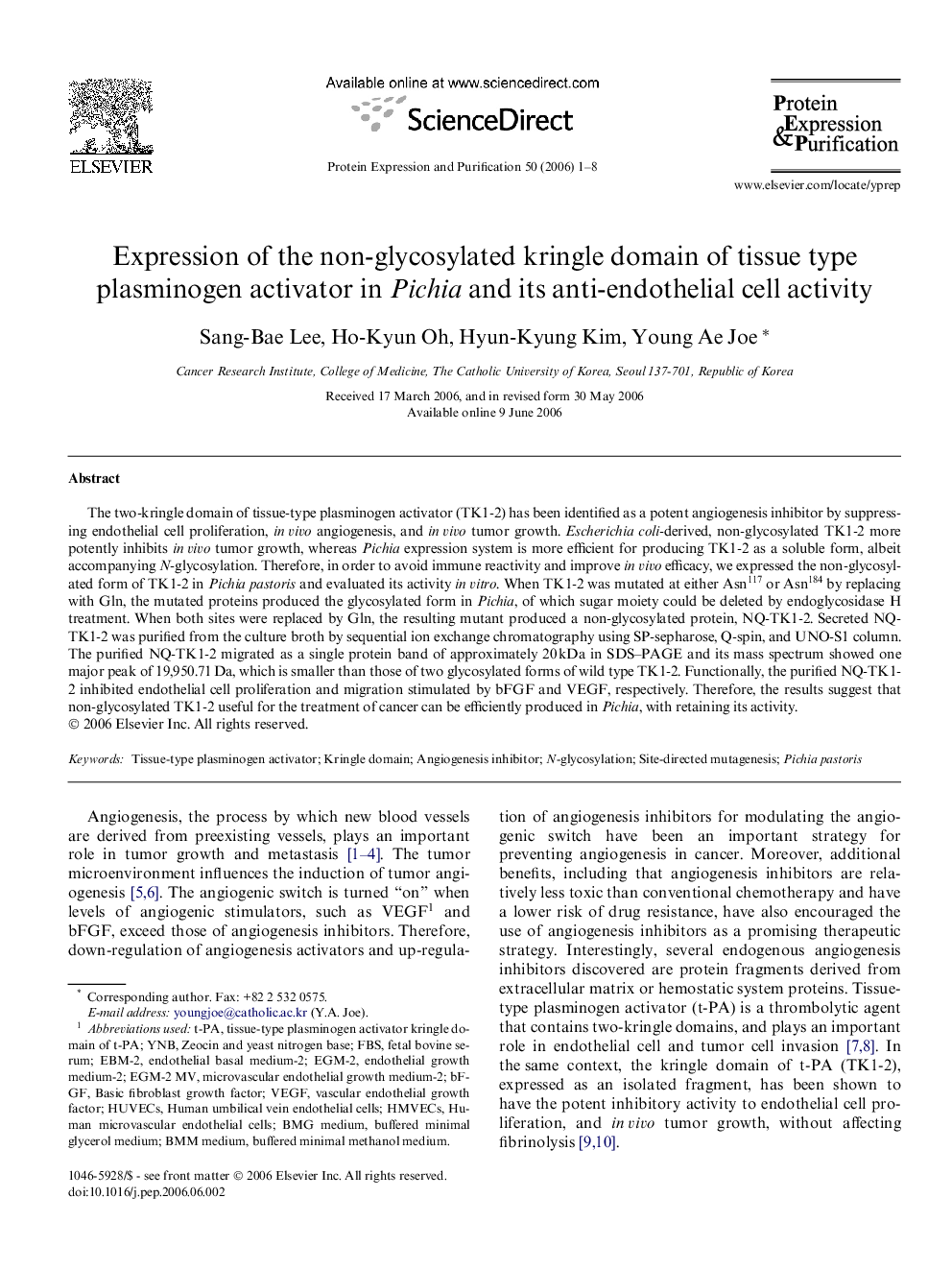| Article ID | Journal | Published Year | Pages | File Type |
|---|---|---|---|---|
| 2022100 | Protein Expression and Purification | 2006 | 8 Pages |
Abstract
The two-kringle domain of tissue-type plasminogen activator (TK1-2) has been identified as a potent angiogenesis inhibitor by suppressing endothelial cell proliferation, in vivo angiogenesis, and in vivo tumor growth. Escherichia coli-derived, non-glycosylated TK1-2 more potently inhibits in vivo tumor growth, whereas Pichia expression system is more efficient for producing TK1-2 as a soluble form, albeit accompanying N-glycosylation. Therefore, in order to avoid immune reactivity and improve in vivo efficacy, we expressed the non-glycosylated form of TK1-2 in Pichia pastoris and evaluated its activity in vitro. When TK1-2 was mutated at either Asn117 or Asn184 by replacing with Gln, the mutated proteins produced the glycosylated form in Pichia, of which sugar moiety could be deleted by endoglycosidase H treatment. When both sites were replaced by Gln, the resulting mutant produced a non-glycosylated protein, NQ-TK1-2. Secreted NQ-TK1-2 was purified from the culture broth by sequential ion exchange chromatography using SP-sepharose, Q-spin, and UNO-S1 column. The purified NQ-TK1-2 migrated as a single protein band of approximately 20Â kDa in SDS-PAGE and its mass spectrum showed one major peak of 19,950.71Â Da, which is smaller than those of two glycosylated forms of wild type TK1-2. Functionally, the purified NQ-TK1-2 inhibited endothelial cell proliferation and migration stimulated by bFGF and VEGF, respectively. Therefore, the results suggest that non-glycosylated TK1-2 useful for the treatment of cancer can be efficiently produced in Pichia, with retaining its activity.
Keywords
Related Topics
Life Sciences
Biochemistry, Genetics and Molecular Biology
Biochemistry
Authors
Sang-Bae Lee, Ho-Kyun Oh, Hyun-Kyung Kim, Young Ae Joe,
